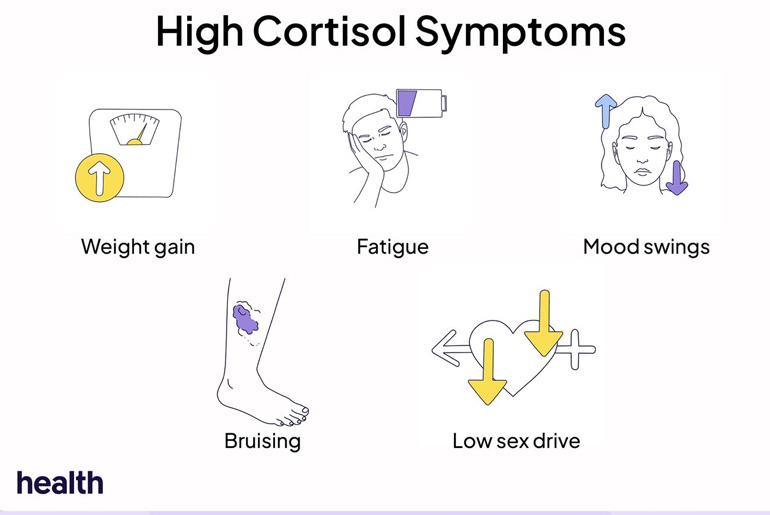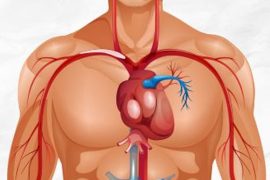Numerous unexpected and perhaps humiliating symptoms can be brought on by high cortisol levels, which are frequently caused by long-term stress or illnesses like Cushing’s syndrome. Weight gain, particularly around the face and abdomen (resulting in a “moon face” appearance), skin thinning or acne, excessive body or facial hair in women, and easy bruising are a few examples.
Mood fluctuations, anxiety, depression, sleep disorders, and memory problems are some other symptoms. Early detection and treatment are crucial for reestablishing hormonal balance and general health because elevated cortisol can also interfere with menstrual cycles, reduce libido, raise blood pressure, and impair immunity.
1. Weight increase in the midsection
A spare tire or round belly is the result of excess cortisol, which encourages fat storage in the abdominal region.
2. Odor under the arms
Armpit odor can become stronger or more severe due to changes in body chemistry and increased perspiration production caused by cortisol.
3. Bad breath
Elevated cortisol levels can cause halitosis by drying out your mouth, which lowers saliva and fosters the growth of bacteria.
4. Skin outbreaks or acne
Acne, particularly on the face, chest, and back, is caused by cortisol, which also causes the skin to produce more oil.
5. Women’s facial hair
Hormone imbalance brought on by elevated cortisol can result in hirsutism, or excessive facial, chest, or back hair growth.
6. Hair loss or thinning
Hair loss or even bald patches (alopecia) can result from cortisol’s ability to damage hair follicles.
7. Mood fluctuations or agitation
Because high cortisol alters brain chemistry, it increases your vulnerability to anxiety, mood swings, and unexpected outbursts.
8. The buffalo hump
Cortisol-induced fat redistribution might result in the development of a fatty hump between the shoulders.
9. Urinating a lot
Increased urination or even moderate incontinence may result from cortisol’s effects on renal function.
10. Sleeplessness or nighttime awakenings
Sleep habits can be disturbed by cortisol dysregulation, making it difficult to get to sleep or stay asleep.
In conclusion, a variety of unexpected and frequently humiliating symptoms that impact one’s physical appearance and emotional health can result from consistently elevated cortisol levels. From belly weight gain, body odor, foul breath, and acne to more serious symptoms including women’s excessive facial hair, hair thinning, and the formation of a “buffalo hump,” cortisol’s effects are extensive. Additionally, it might interfere with sleep, mood, and urination, which can drastically lower quality of life. It is crucial to identify these symptoms early and treat the underlying causes, whether stress-related or brought on by illnesses like Cushing’s syndrome, in order to restore hormonal balance and advance general health.
Disclaimer:
The information contained in this article is for educational and informational purposes only and is not intended as a health advice. We would ask you to consult a qualified professional or medical expert to gain additional knowledge before you choose to consume any product or perform any exercise.







